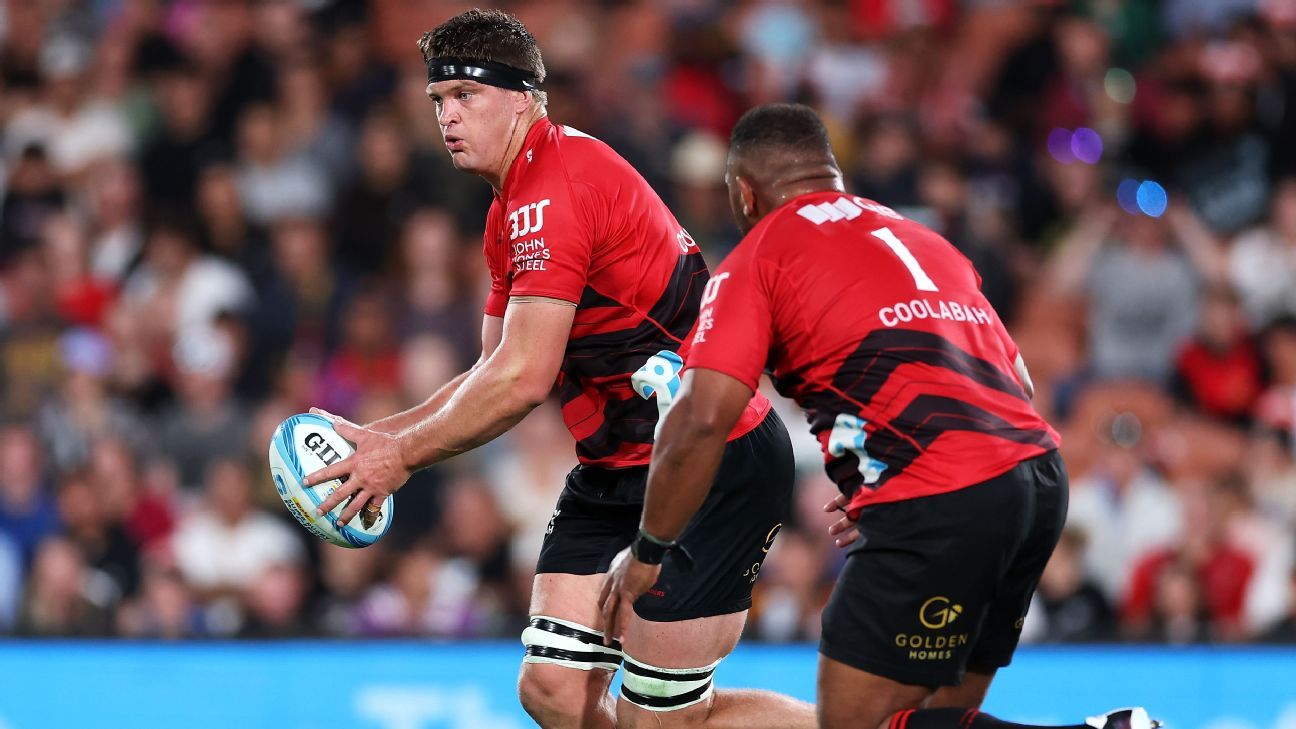Smart mouthguards will remain compulsory for players in Super Rugby Pacific but organisers have temporarily tweaked the rules over their use from this weekend’s second round after technical issues in the season-opening matches last week.
The mouthguards (iMGs), which are compulsory in training and matches this season, are supposed to send an alert to medical staff so a player who has suffered a significant head knock can be withdrawn from the pitch for a concussion test.
Several players looked confused when ordered to leave the pitch for the Head Injury Assessment (HIA) last weekend, however, and on Friday Super Rugby Pacific said there had been issues with the data transfer process.
“Players will continue to wear the iMGs this weekend but will not be required to immediately leave the field for an HIA when their mouthguard triggers an alert to pitch-side doctors,” the league said in a statement.
“Instead, players will be checked by an on-field doctor after a trigger alert has been received. If the doctor has any concerns the player will then leave the field for an HIA.”
Rugby union has been grappling with the long-term impact of repeated concussions in recent years and World Rugby and other governing bodies are facing a rash of lawsuits from former players who say they suffered brain injuries.
The smart mouthguards are also being used by players in the Six Nations championship in Europe.
“World Rugby will run further trials in round three of Super Rugby Pacific to test improvements to the data-transfer process, with a view to reinstating iMG alert protocols once these issues are fully resolved,” the statement continued.
“Player safety remains the top priority for World Rugby, SANZAAR and the Super Rugby Pacific competition, and there is a shared understanding between all stakeholders that iMGs are a key technology for the game moving forward.”
